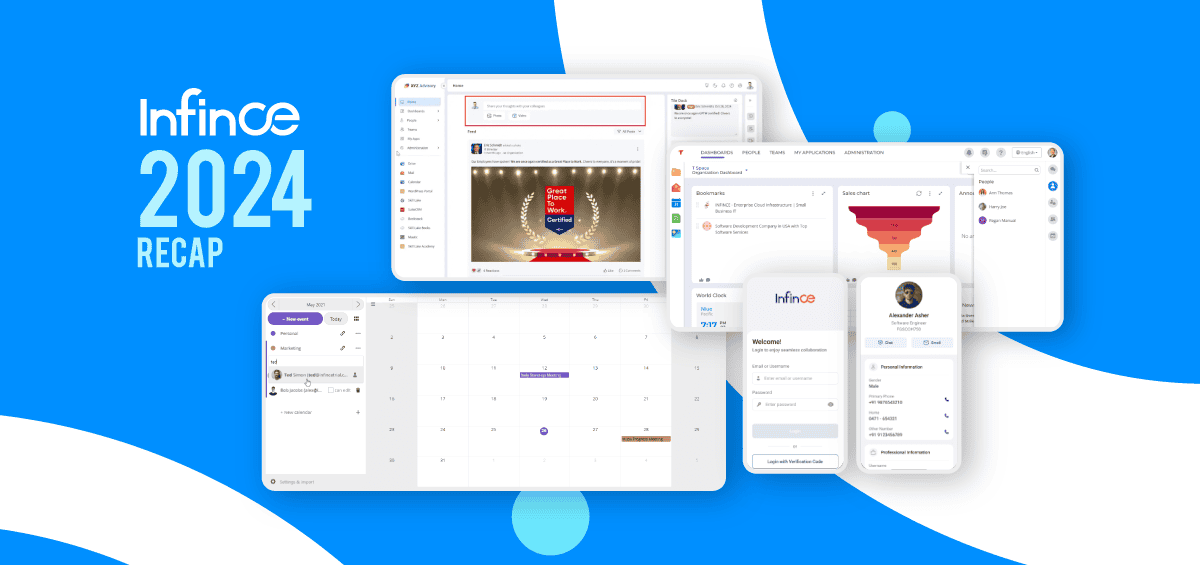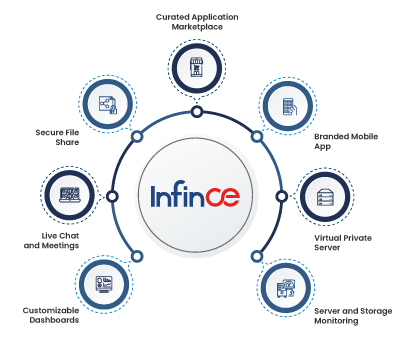CRM systems have come a long way from their origins as contact management systems for storing and retrieving contact information. Enterprises across-the-board now regard it as a valuable and indispensable tool to not just manage and improve relationships with contacts but to manage the entire gamut of customer relationship management.
The nature of CRM has also witnessed a tectonic shift. Cloud-based CRM now dominates with 87% of the total market share, a big jump from just 12% in 2007. The overwhelming preference for cloud-based CRM is for good reasons.
1. The Cloud Facilitates Big Savings in Cost and Effort
On-premises CRM entails huge upfront investment in hardware and servers. The cloud CRM vendor absorbs such investment and offers a pay-as-you-go payment model for clients. Businesses pay only a monthly charge, converting their capital-expense (CAPEX) costs into an easy attributable operational expense (OPEX.) Still better, the CRM becomes easily scalable, with the ability to add capacity easily as and when required, and scale-down during downtime.
The spillover monetary benefits of hosting CRM in the cloud includes hassle-free maintenance, no troubleshooting, and freedom from having to upgrade the CRM periodically. These tasks are done by the vendor, and the enterprise can, in fact, do without single IT personnel in-house.
Cloud-based systems are quick and painless to deploy as well. The set-up is as simple as paying the subscription fees and logging in. Cloud-based CRM systems tend to prioritize ease of use and accessibility, meaning easier learning curve for end users and lesser training costs for enterprises.
2. Cloud Enables Anytime, Anywhere Access
The biggest advantage of cloud-based CRM is anytime, anywhere access. The data and the software reside in the cloud, and accessible through convenient mobile apps or other front end software, without constraints of geography or time. The ability to access the CRM through intuitive mobile apps is arguably the single biggest benefit of cloud-based CRM considering 65% of employees achieve their sales quota when using mobile CRM, and only 22% of employees achieve their sales quota when mobile CRM isn’t used.
The anytime anywhere access make cloud hosted CRM ideal for today’s fast-paced and highly competitive world, where opportunities exist only for a short while and have to be seized at the instant. Opportunities come knocking rarely. With a cloud-based CRM ready, the executive is ready to seize the opportunity by having all information and resources in his smartphone, regardless of whether he is at the airport, a spa, a business meeting or out for lunch.
3. Cloud Brings Integrated Data Management
A cloud-based CRM not just centralizes data in one place, but is also handy to integrate information from external, disparate sources, such as media activity, project management information, accounting information, and more. Dedicated cloud integration tools facilitate the seamless sharing of data from disparate sources.
The integrated and consolidated processing of information prevents gaps in information or understanding when dealing with a customer across multiple touch points. Marketers and other users have access to real-time or latest data, synced from the cloud server whenever online.
4. Cloud-Based CRM is Always Updated
Upgrading on-premises CRM is a hassle, requiring modification of the code, and provisioning everything again. With a cloud-based CRM, the vendor takes up the task. The vendor is more likely to upgrade the CRM and co-opt new features very fast, to pre-empt losing customers to competitor products. Cloud-based CRM vendors are also more likely to innovate, to offer better features and functionality, to differentiate themselves from competitors.
5. Cloud CRM Facilitates Seamless Collaboration
A cloud-based CRM doubles up as an effective collaboration tool, offering remote and off-site employees a reliable and robust medium to connect and collaborate with their team and customers alike. The Cloud CRM offers a common interface enabling team members to share data and updates that contribute to the end objective of increasing sales and customer satisfaction. International teams especially can collaborate effectively across time-zones.
6. Cloud Offers Robust Security More Often Than Not
Security is the literally the million dollar question staring at enterprises in the wake of heightened security breaches. A 2018 study by Juniper Research estimates cybercriminals to steal an estimated 33 billion records in 2023, up from an already whopping 12 billion records in 2018.
Contrary to perception, the cloud is more secure than on-premises systems. Any decent cloud-based CRM offers robust security, free from the usual suspects of out-of-date software. The CRM is the bread and butter rather than an appendix, the vendor is more likely to and is able to take the proper precautions, with dedicated staff looking to discovering and closing weak security points.
CRM also lessens the risk of system failure, with dedicated servers and redundant databases minimizing the risk of loss of data or downtime. Businesses have the flexibility to negotiate an SLA service-level agreement with an agreed upon level of service, including the acceptable “downtime,” beyond which compensation sets in.
While the cloud-based CRM offers several advantages, it is by no means a magic wand to success. Success depends on the skillful implementation, overcoming challenges such as retaining control of data, effective collaboration with the vendor’s support system and provisioning adequate bandwidth to access the cloud seamlessly. With INFINCE make it all possible. Call us today to learn how INFINCE can help you battle business challenges with infinite cloud.






